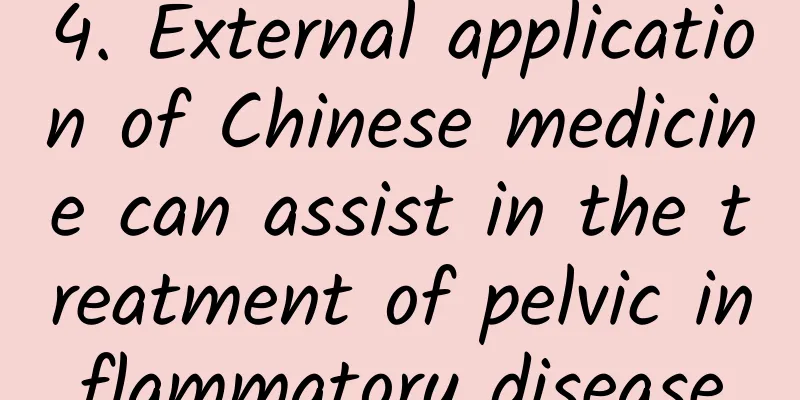Popular Science: Your lingering period may be related to these diseases!

|
My period just won't go away. What's going on? According to doctors, a normal period usually lasts 2-8 days. If it lasts for more than 10 days, you should consider other reasons. If women who have their periods only occur during adolescence have this condition, it may be because their ovarian function has not yet fully matured and their endocrine system is unbalanced. After a long period of time, the menstrual period will return to normal. In this case, women don't need to worry too much. But for adult women, if this happens, you should consider whether it is a gynecological disease. The lingering period may be related to these diseases! 1. Pelvic inflammatory disease: Pelvic inflammatory disease can be divided into acute and chronic. Usually, after the acute pelvic inflammatory disease is effectively treated, there will be no chronic pelvic inflammatory disease. However, some women are reluctant to see a doctor and keep delaying treatment, which eventually leads to the occurrence of chronic pelvic inflammatory disease. 2. Uterine disease: I believe everyone knows the importance of the uterus. After all, everyone has only one. Uterine diseases include uterine fibroids, endometritis, functional uterine bleeding, etc. It is recommended to go to the hospital for an examination to determine the cause of the disease. 3. Placement of IUD: Some women want to be a permanent contraceptive after giving birth, so they will choose to have an IUD. However, some women have more sensitive bodies, and their bodies will have rejection reactions after having an IUD, such as irregular menstruation, a small amount of bleeding or brown discharge. 4. Medical abortion: The drugs taken for medical abortion will destroy the balance of hormone levels in the body and cause hormone disorders. Some women will experience abnormal menstrual cycles and prolonged bleeding. If some women take medical abortion for more than 2 weeks, they should go to the hospital for a B-ultrasound check in time to see if the residues in the uterine cavity have been drained out. If not, they must undergo a uterine curettage in time to avoid infection of the uterine cavity caused by these residues. Warm reminder: In addition to the diseases mentioned above, it may also be related to other factors in daily life. It is recommended that you develop good living habits. If the menstrual condition is still not relieved, seek medical treatment in time. |
<<: Don’t let premature ovarian failure end your youth
>>: Early symptoms of ectopic pregnancy Know these symptoms to detect ectopic pregnancy in time
Recommend
What are the types of pelvic inflammatory disease?
Pelvic inflammatory disease is a common gynecolog...
Diet adjustment for vulvar itching
The vulva is a relatively private area of women...
Who are the susceptible groups for candidal vaginitis?
Candidal vaginitis is a gynecological disease wit...
Golden rules of diet and nutrition to prevent threatened abortion
Diet is very important for women. The golden rule...
Can I eat beef after a miscarriage?
Women are weak after miscarriage and need proper ...
Let's take a look at the symptoms of white lesions of the vulva.
White lesions of the vulva, also known as leukopl...
How to do daily care for patients with pelvic peritonitis
We should pay attention to the disease of pelvic ...
What foods are good for endometrial thickening?
Endometrial thickening may lead to irregular mens...
Symptoms of uterine fibroids vary greatly
Uterine fibroids are a benign tumor, but if they ...
There are three factors that lead to miscarriage. How to avoid miscarriage in early pregnancy
After pregnancy, some pregnant mothers will exper...
How much does it cost to have an abortion during pregnancy
Painless abortion is an early termination of preg...
What is the reason for the high incidence of uterine fibroids in women? What are the hazards of uterine fibroids?
In today's life, the incidence of uterine fib...
What are the dietary instructions for painless abortion?
There are many women who have unexpected pregnanc...
We must not relax our efforts in epidemic prevention! Key nutrient intake with fermentation upgrades to enhance self-protection
The COVID-19 epidemic has been going on for as lo...
What should I do if I have mycoplasma vaginitis?
What should I do if I have mycoplasma vaginitis? ...









